Poldark episode 7 review: Foot fetishism? Really?
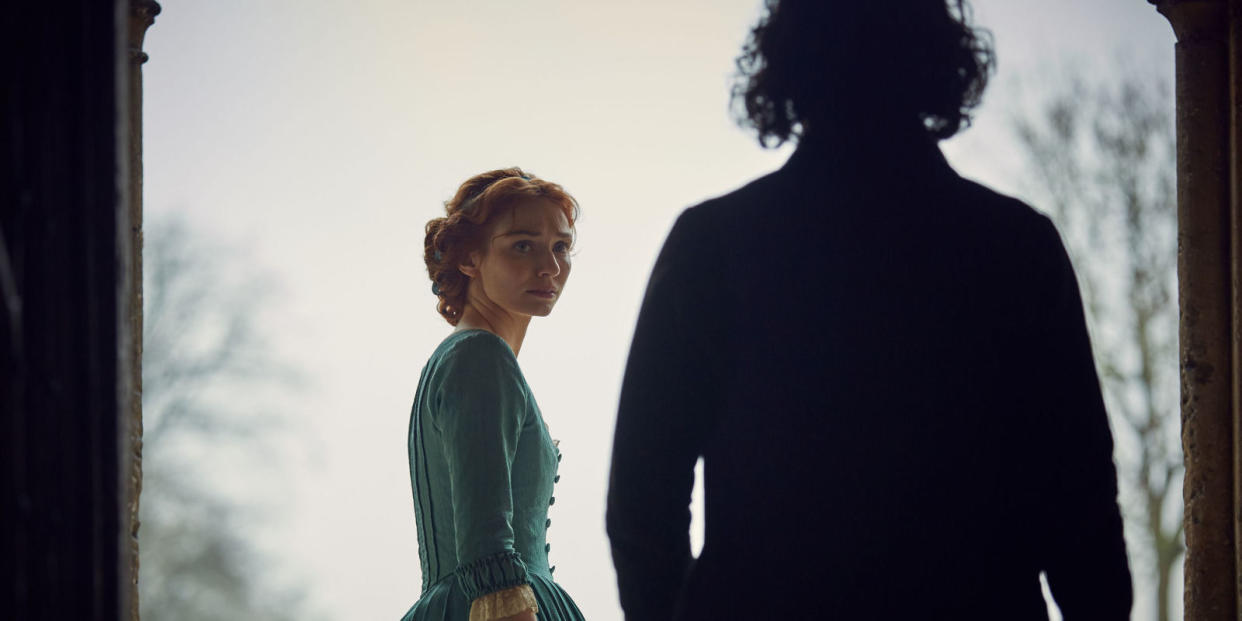
Every telly viewer knows the rule of Chekhov's Gun: don't put the gun on the stage in Act One unless you're going to fire it in Act Three.
So when an episode of Poldark begins with grizzly old Tholly (Sean Gilder) announcing that he's the new gravedigger, you can be pretty sure someone's going to be at the dirt-end of his spade before the Ten O' Clock News barges in. Chekhov's Gun has become Chekhov's Shovel.
The question is, who's going to be at the end of that shovel?
You'd love it to be Osborne, wouldn't you? Not only has he got Morwenna (Ellise Chappell) pregnant, the insatiable sex hippo threatens to beat her when she won't retreat to the bed for a few minutes under him. And that's putting it in a far more delicate way than the show does.
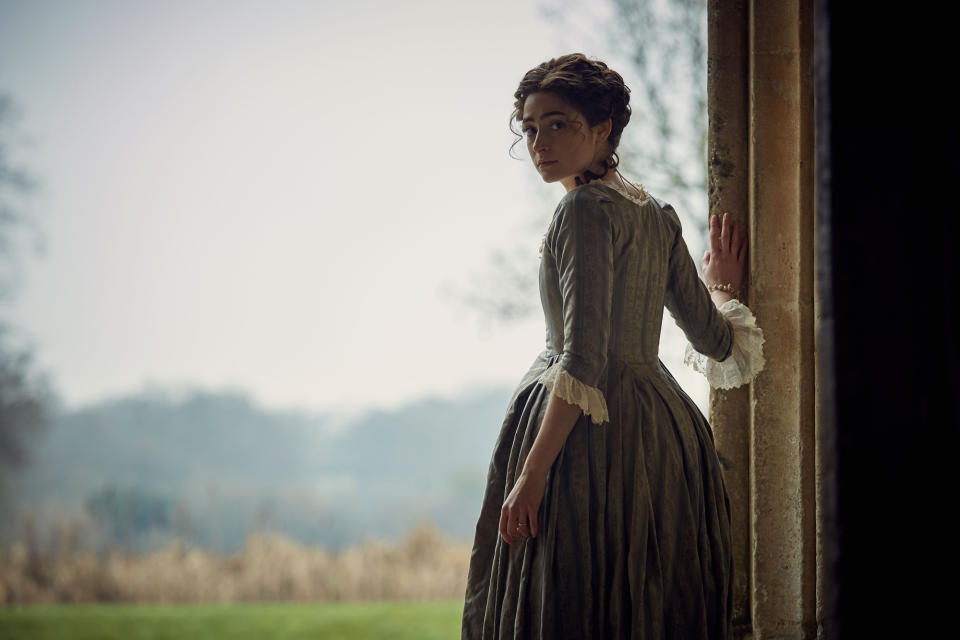
Christian Brassington embraces Osborne's larger-than-life nature with gusto as he sweats and swaggers with all the charm of defrosting meat. He's a pantomime villain in pantaloons: a preening bully, one who isn't content to be a lascivious bastard to Morwenna, but also her sister, and her feet.
His rushing off after catching a glimpse of her stocking-clad tootsies is the show's first masturbation joke, and it isn't a subtle one.
It's fair to say that nuance isn't a word that Poldark knows, but something it is really good at is the little moments. Ones which let you take a second from all the melodrama but without losing the theme of it. The sight of a dandelion blowing in the breeze, the shots of mist rolling in along the coast, the sea beating the cliffs. It's like televisual Pointillism; all those little bits that you can take in and then step back from to see the big picture.
That big picture this week is political. Don't worry if you're still suffering from Referendum or Election fatigue, Poldark politics puts the schwing into Swingometer. Sir Francis Basset (John Hopkins), who sadly is not from the Allsorts Licorice dynasty, wants Ross to become the new candidate for Parliament. Could we soon be hearing the chant of "Oh, Ross Poldark!" among the locals? Will he be admitting to scything topless through a field of wheat?
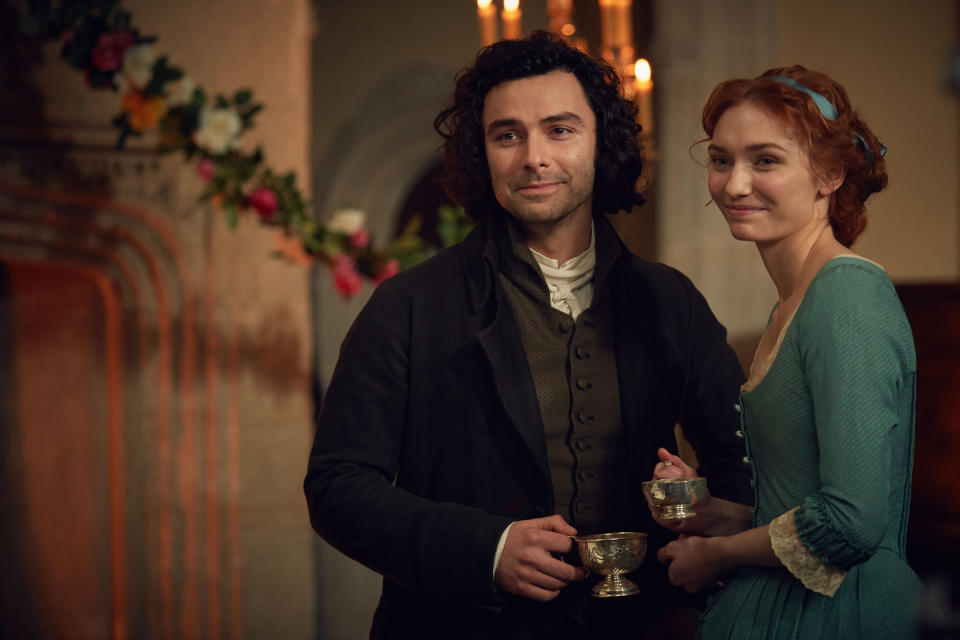
No, because Ross is – to alliterate wildly – a person of principle, not a party's political puppet. "Power is pursued for its own sake, rather than the good it can do," he says, with Aidan Turner giving it the kind of conviction that you wish your real elected leaders had.
It's the kind of nobility the show has worked hard to remind the audience over its few years, and which has had to be rebuilt ever since that moment in series 2. Ross is the man who'll always defer to the greater good.
Yet even after years of marriage Demelza still somehow hasn't cottoned onto that. She's tired of him mine-splaining and Pol-dicking about without consulting her. Perfectly understandable, but surely the moment he sailed off to Revolutionary France on an A-Team suicide mission was the time to get mad about not consulting her?
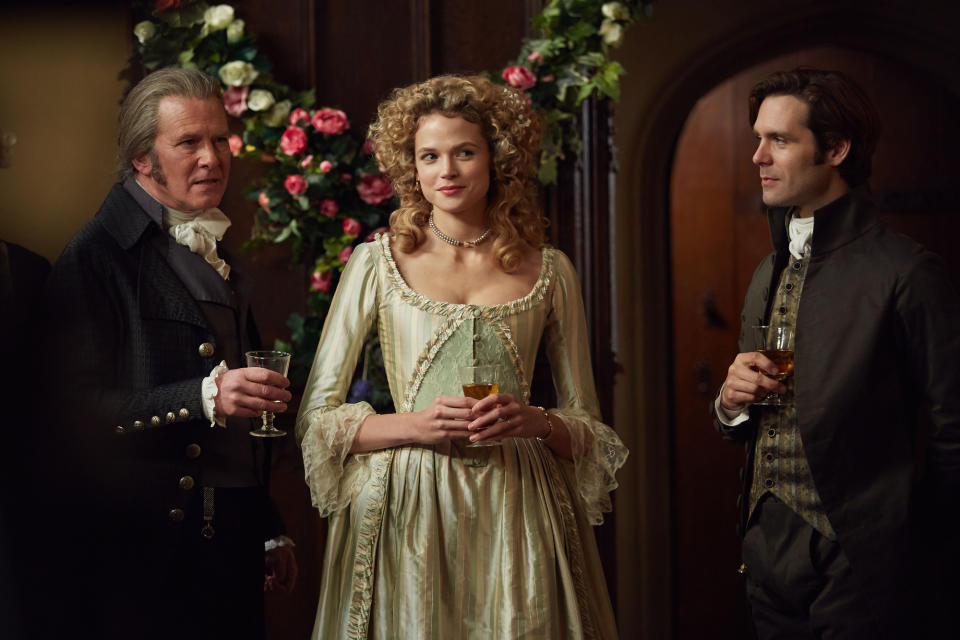
Ahh, but this is the show setting up an excuse for Demelza to return the affections of naval puppy Hugh Armitage (Josh Whitehouse), who pursues Mrs. Poldark with all the charm and subtlety of a teenager using his privates as a divining rod. His advances are claw-your-own-face-off awkward to watch, but perhaps what's even more awkward is that Demelza doesn't shoot him down.
Speaking of things being shot down, Aunt Agatha's centenary shindig gets cancelled by George in a scene so OTT it's a wonder it doesn't gush out of your screen and leave a weird stain your carpet.
"There. Will. Be. No. Party," he enunciates at her, and you wonder how Jack Farthing can keep a straight face while trying to deliver such a daft sentence so seriously. Agatha can't help but rise to it. The one thing better than watching Ross and George trade verbal blows is watching Agatha and George have at it.
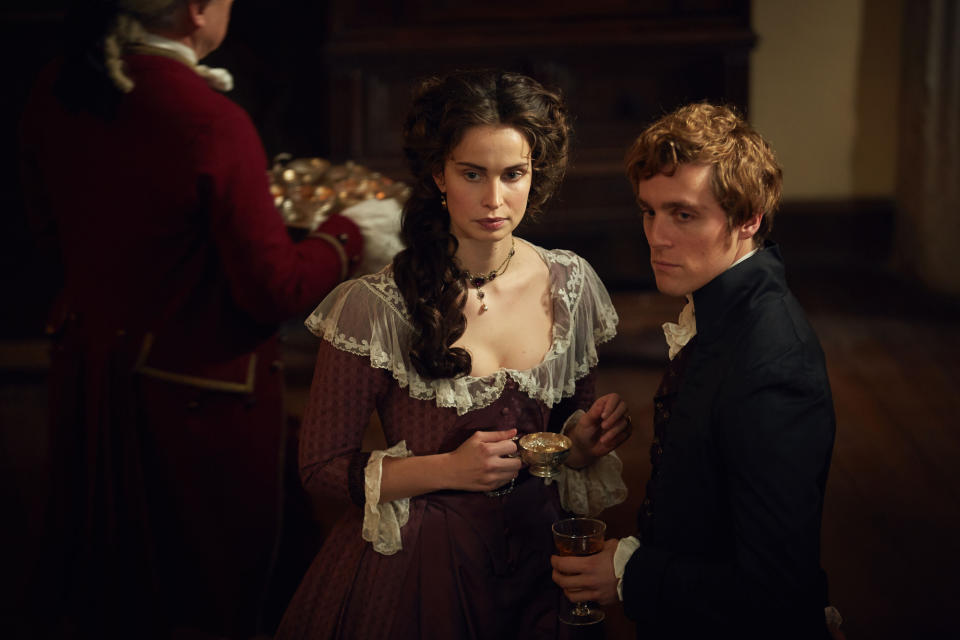
It's an argument that George arguably wins, seeing as he doesn't die soon after it. Aunt Agatha passes, filled with regret for blabbing about the baby. The music swells, the baby cries, George makes a Faustian pact with Sir Francis Basset. It's melodrama of the highest order and classic Poldark viewing.
So farewell then to Caroline Blakiston, who has always been such a treat to watch, her Agatha acerbically cutting through the treacle and the trauma like a card-playing Greek chorus. It's a shame we'll not have her to snark at the bad times that are clearly coming.
Things just keep getting worse in Poldark. Is anyone going to be happy? Or are people just going to be miserably shagging people they're not meant to be with, or meeting the dirt-end of Tholly and Chekhov's shovel? It makes you yearn for the simple days of worrying about Ross' mine. Poldark remains the gold-standard of Sunday night telly, but right now it's hardly a feel-good watch.
Want up-to-the-minute entertainment and tech news? Just hit 'Like' on our Digital Spy Facebook page and 'Follow' on our @digitalspy Twitter account and you're all set.
You Might Also Like

 Yahoo News
Yahoo News 
